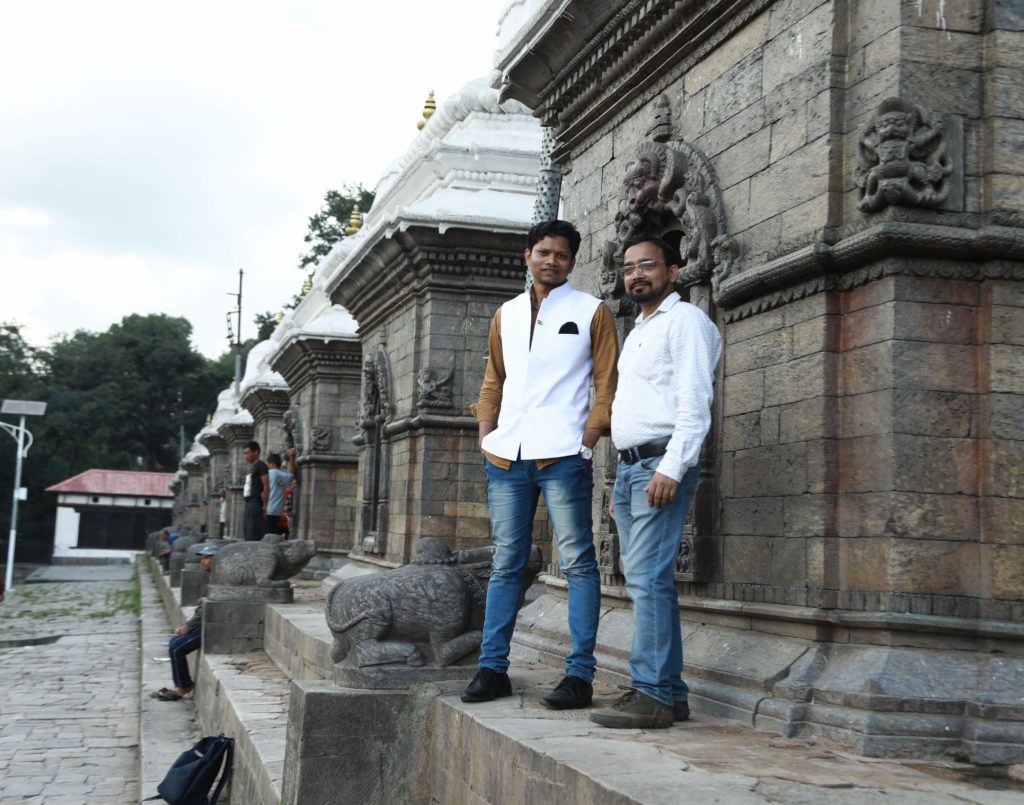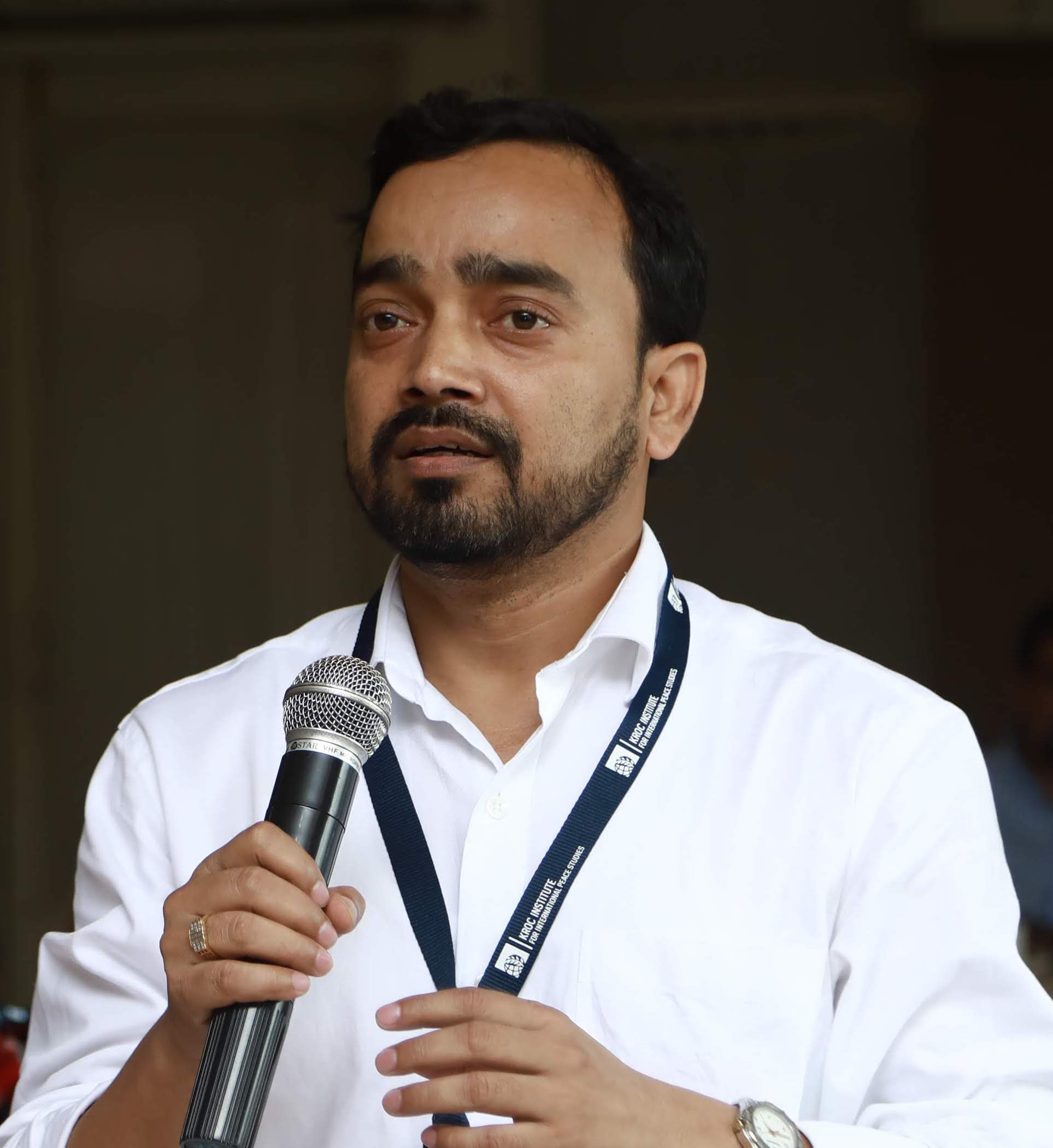
As the Madrasa Discourses program approaches three years, our most advanced students are preparing to apply what they have learned to their respective professions. This coming July 2019 select students will present research showcasing their new methodological capabilities and broader literacies among scholars in their home communities. Focusing in particular on the experiences of the 2018 summer intensive, Manzar Imam reflects on the questions that Madrasa Discourses has helped him begin to answer, and reflects on the path forward.
***
One of the biggest challenges confronting the followers of Abrahamic traditions today comes in the form of questions about the relevance of and justification for their practices. Around the world, Christianity, Judaism, and Islam are showered with a flurry of such questions. As a combined challenge it calls for a combined effort to both understand the nature of those questions and offer the best possible answers. The task is herculean. But, just as the human mind has the capacity to ask questions, it also has the temperament, the depth, and the capability to seek and, in many cases, find convincing answers, because the Creator has endowed the human mind with an abundant power of imagination and strength of logic.
The July 2018 fifteen-day intensive Madrasa Discourses program held at Dhulikhel in Nepal attests to that human endeavor and endowment.
One of the overarching concerns of the Madrasa Discourses summer intensive program was whether theology has or can have answers to the contemporary objections raised against Christianity, Judaism, and Islam. And, if theology can provide these answers, how then can this knowledge be disseminated and communicated to others, and especially to religious teachers such as Islamic ‘ulamā? It is to help answer these questions that a group of madrasa graduates from India and Pakistan have been selected for training in modern philosophy and science and other branches of knowledge with the objective to develop scientific and theological literacy.
Understanding any system of beliefs, and grasping the nuances of its ideational threads and the philosophies involved in their justifications, requires thorough study, deep research, and high interpretational skills. As with the clergies of all religious traditions, cultivating these faculties can be challenging enough in its own right, but the attitude of traditional ‘ulamā hardly leaves any scope for meaningful and engaging discussions in the wider Muslim society.
The problem with most ulamā is not their intention, but their approach to addressing present-day issues. Heavy reliance on texts leaves behind the larger objective and context leads to a kind of blind wisdom. What is the solution, then? How can this be corrected? Can teaching some contemporary subjects alongside a traditional madrasa education help? Correcting this problem must address not just the teaching and the texts, but also the suffocating atmosphere in which new ulamā are trained: an atmosphere where no questions are asked and, if any are posed, they are neither addressed nor encouraged. This resonates with an observation from astrophysicist Neil deGrasse Tyson, who remarks: “We spend the first year of a child’s life teaching it to walk and talk and the rest of its life to shut up and sit down. There is something wrong there.”
Dr. Saadia Yacoob’s approach to exegetes of some of the Quranic verses, presented last July 2018―especially those related to marriage, divorce, alimony, adoption, and a husband’s position in family—need to be more widely acknowledged, appreciated, and circulated. Yacoob, an assistant professor of religion at Williams College, Massachusetts and a Muslim with a background in Islamic jurisprudence, articulates compelling and convincing arguments for an urgent need to approach theology from a broad historical perspective. She sees this need in all the theology schools such as the Hanafi, Maliki, and Shafi’ī schools, etc.
Yacoob’s extensive lectures on sexual violation in Islamic law elaborated upon the history and processes of law formation, and underscored the significance of careful study of the contexts in which Islamic legal rulings are located. In her own words, “You know the usūl [theories] but there is a larger cosmology that needs to be understood.”
Issues of zinā (adultery), khula (a woman-initiated divorce), tamlīk (ownership), dower, dowry or more contemporary subjects like the status of milk banks and other surrogacy-related concerns have to be looked at with fresh insights. We must take into consideration the bioethics that historically and culturally precede jurisprudential logic, and then consider the epistemological, ontological and larger cosmological bases that provide the possibilities of diverse interpretations.
Though these usūl are derived to a large extent from traditional primary sources, there are other important sources that can provide input. As University of Notre Dame PhD student Mahmoud Youness noted in Dhulikhel, quoting Mulla Sadra, a seventeenth century Iranian mystic and theologian, “change is the divine sunnah.” There is a need to re-examine the tradition with fresh eyes and new perspectives.
For instance, the patriarchal leaning of Islamic fiqh has been well known, and is now being countered, especially by feminist scholars of Islam. The unfortunate part of this pushback is that Muslim feminist scholars―who are not necessarily all women―are forced to fight on two fronts: first vis-à-vis non-Muslim or mainly Western feminists, and second against their own traditional uṣūlī ‘ulamā, who, in most cases, are unwilling to budge from their traditional positions, making the Islamic fiqh look archaic and illogical.
Having studied both in madrasas and in Western institutions, Dr. Ebrahim Moosa of the Kroc Institute at Notre Dame says that the task of answering the questions facing Islamic theology today cannot be met by those who have neither been educated in madrasas nor understood the legacies of Islamic sciences. It can also not be accomplished by an individual. It is the responsibility of modern day ‘ulamā who have interactions with both theological and scientific literacy and training. The task is not simple, and the responsibility is challenging and demanding. He further says that those ‘ulamā who have no attachment to their Islamic roots and have jumped on the modern intellectual bandwagon cannot effect this change. It is with this spirit and hope that Professor Moosa encourages the Madrasa Discourses participants to encounter wide literatures, including poetry which promotes thinking outside of the box and which, besides lamenting the loss of past glory, nudges us towards the neglected path of deep academic engagement that has been the hallmark of Muslim culture across civilizations.
Besides great theological insights, one of the biggest lessons of the 2018 summer intensive was the exchange of ideas between participants of different faiths and nationalities. A Christian American student wearing burqa as a mark of respect to her Muslim Indian, Pakistani, and South African counterparts on the penultimate day of the program to “get a sense of how it feels” was simply an overwhelming sight for me. Gestures like these help us promote the idea of interfaith engagement and encourage us to accommodate differences rather than to obstruct or oppose them.
If well begun is half done, the Madrasa Discourses project of the Contending Modernities program promises participants a bright future into the great academic legacy of not just Islam but other traditions such as Christianity and Judaism which are faced with similar challenges. The success of this program will not only open opportunities for interfaith dialogue but also for exchange of ideas within diverse Muslim intellectual traditions.

